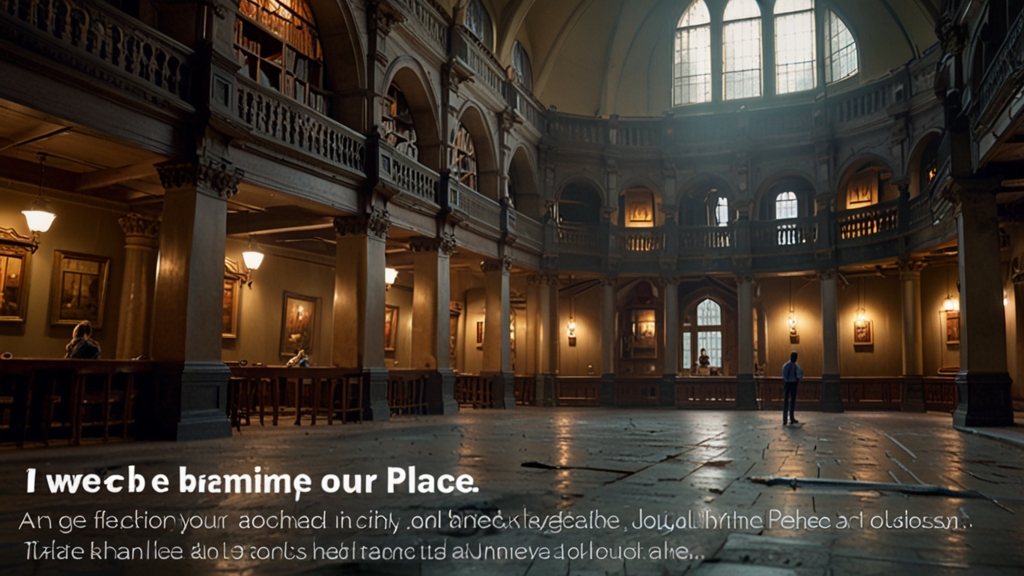The Unseen Spiritual Impact of the Crucifixion Through Time
The crucifixion of Jesus Christ stands as one of the most pivotal events in human history, known not just for its immediate historical and religious consequences but also for its profound and far-reaching spiritual impacts that have unfolded over centuries. While the visible ramifications are well-documented, the unseen spiritual influences continue to resonate deeply within the fabric of countless lives and societies around the globe.
The Immediate Spiritual Aftershock
At its core, the crucifixion represents the ultimate act of sacrifice and redemption. For early Christians, it was a source of intense spiritual revelation and transformation. The death of Jesus was perceived not merely as a tragic end but as the fulfillment of divine prophecy and the inception of a new covenant between God and humanity. This event galvanized the nascent Christian community, imbuing it with a sense of purpose and mission that transcended their circumstances.
“But God demonstrates his own love for us in this: While we were still sinners, Christ died for us.” – Romans 5:8
These early followers, despite facing severe persecution, drew strength and inspiration from the crucifixion. The event provided a profound spiritual anchor, offering a narrative of hope and faith that sustained them through trials and tribulations.
Medieval Mysticism and Personal Piety
As Christianity spread across continents, the crucifixion's spiritual impact evolved in its expression. During the medieval period, the event began to take on a more individualized, mystic dimension. Theologians and mystics like St. Francis of Assisi and Julian of Norwich experienced deep, personal revelations linked to the suffering of Christ. Their writings reflect an intimate connection to the crucifixion, interpreting it as an avenue for personal salvation and a deeper communion with God.
For many medieval Christians, meditating on the crucifixion became a central aspect of their spiritual lives. The vivid imagery and passion plays of the time were not just cultural phenomena but spiritual exercises meant to bring believers closer to the divine. This period underscored the idea that the crucifixion was not merely a historical event but an ongoing spiritual reality.
“All shall be well, and all shall be well, and all manner of things shall be well.” – Julian of Norwich
The Reformation and Beyond
The Reformation brought about significant theological shifts, but the crucifixion remained a central theme. Martin Luther and other reformers emphasized the doctrine of justification by faith, viewing Christ's sacrifice as the ultimate testament of God's grace. This theological pivot reinforced the spiritual significance of the crucifixion, making it a cornerstone for Protestant spirituality.
In the centuries that followed, the spiritual reverberations of the crucifixion continued to manifest in various forms. From the rise of evangelical movements to contemporary Christian thought, the cross stands as a symbol of profound spiritual truth—God's relentless pursuit of mankind and the depth of divine love.
Contemporary Reflections and Interfaith Implications
Today, the crucifixion's spiritual impact is not confined to Christianity alone. Its themes of sacrifice, redemption, and love resonate across different faiths and philosophies. Many see in the crucifixion a universal narrative of human suffering and hope, transcending religious boundaries.
Modern theologians and spiritual leaders often draw on the crucifixion to address contemporary issues, offering a lens through which to view suffering, justice, and compassion in today's world. The crucifixion continues to inspire acts of charity, social justice, and personal transformation, demonstrating its enduring spiritual power.
“The message of the cross is foolishness to those who are perishing, but to us who are being saved it is the power of God.” – 1 Corinthians 1:18
Conclusion
The unseen spiritual impact of the crucifixion spans time and space, touching lives in ways that are both profound and subtle. From galvanizing early Christians to inspiring modern acts of compassion and justice, the crucifixion remains a potent symbol of divine love and human redemption. As we continue to reflect on its significance, we recognize that its true power lies not just in its historical or religious context, but in its ability to transform hearts and minds across generations.





